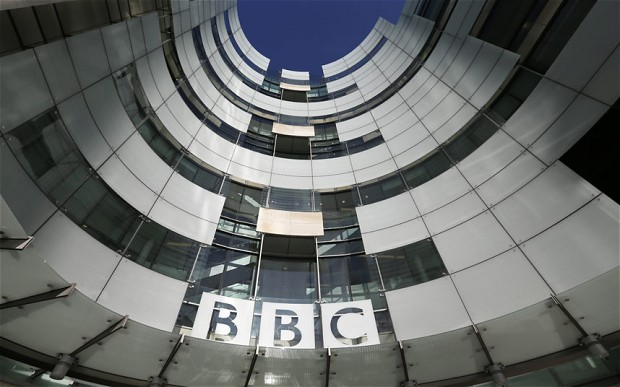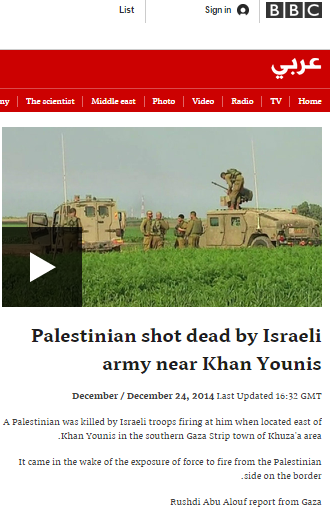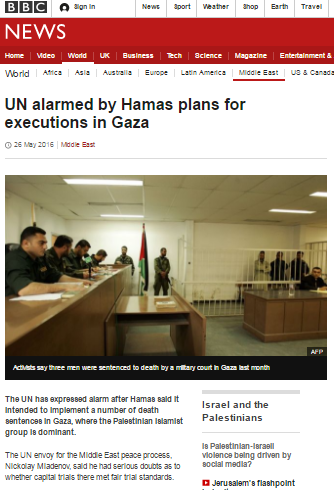Since the implementation of the ceasefire between Israel and Hamas towards the end of August last year, the BBC’s reporting from the Gaza Strip has focused on very specific topics.
The vast majority of reports have related to the topic of damage to buildings in the Gaza Strip, with a prominent theme in that reporting being promotion of the inaccurate notion that efforts to repair and rebuild housing are hampered solely by Israeli restrictions on imports of construction materials to the Gaza Strip. Examples can be seen here, here, here, here, here, here, here, here and here.
Another trend seen in BBC reporting since the end of the conflict has been the amplification of reports by politically motivated NGOs involved in lawfare: see examples here, here, here and here. Audiences have also seen and heard reports on what can be loosely termed medical issues in the Gaza Strip: see examples here and here.
BBC reporting on breaches of the ceasefire has been patchy. A mortar fired from the Gaza Strip at the Eshkol district on September 16th was not reported at the time but given a brief mention in a later report. A missile fired on October 31st was ignored and a missile attack on December 19th was only reported when Israel responded. A sniper attack on December 24th was reported in Arabic alone.
Notably, the BBC’s post-conflict reporting on the Israeli side of the story has been limited to one article.
Audiences have not been provided with any information whatsoever on the issue of the Gaza Strip based terrorist organisations’ rehabilitation of their military capabilities, including Hamas’ missile testing which has been taking place very frequently in recent months.
“Hamas’ military wing launched three rockets aimed at the Mediterranean Sea on Saturday, Palestinian sources in the Gaza Strip reported, as part of experiments designed to restore Izz ad-Din al-Qassam Brigades’ firepower to what it was before Operation Protective Edge. This marks the third day in a row that test rockets were launched. […]
The rockets testing joins a long list of recent experiments made by Hamas in the past few weeks. It is estimated that since the end of Operation Protective Edge, dozens of rockets have been launched towards the Mediterranean Sea from within Gaza for experimental purposes.
Hamas official in Cairo Moussa Abu Marzouk confirmed that Hamas has conducted experimental rocket launches and said that they do not constitute a violation of the ceasefire agreement between Gaza and Israel because the agreement did not mention and was not agreed upon that Hamas was prevented from carrying out experiments with rockets.”
Similarly, publication of the news that the Israeli navy prevented the smuggling of materials for missile manufacture by sea on January 19th has been totally ignored by BBC correspondents.
“The incident occurred in the early morning hours of January 19th, when naval forces identified the suspicious boat making its way from the shores of Sinai to the Strip’s shores. Before it arrives at the Gazan beach, the navy soldiers called on three Palestinians aboard the ship to stop.
A search by the soldiers discovered liquid fiberglass on the vessel. The three Palestinians were taken in for investigation by the Shin Bet, where they admitted the materials were meant for rocket and mortar manufacture in Gaza.
They said they were sent to collect the materials from Sinai and deliver it to Hamas’ military wing in a timely manner. An indictment was filed against the three at a courthouse in Be’er Sheva.”
The issue of the naval blockade on the Gaza Strip is invariably presented to BBC audiences in terms of ‘Israel says it is a necessary security measure’. Obviously the BBC can only continue to employ such partisan terminology as long as it continues to refrain from informing its funding public of attempts to smuggle arms and weapons manufacturing materials into the Gaza Strip.
The BBC’s framing of post-conflict issues keeps audience attention focused on the topic of reconstruction in the Gaza Strip but fails to make them aware of no less important issues vital for their understanding of current and future regional developments. If – or when – Israel is once again obliged to respond to situations created by Hamas policies, BBC audiences will once again be lacking the essential context behind the story.




